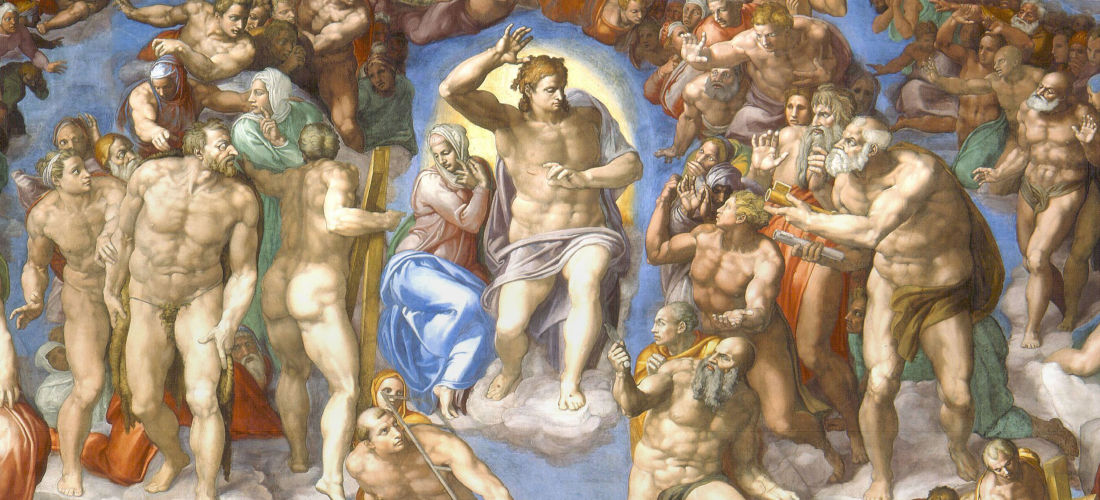a silent topic – suffering and pain
There are some topics people emphatically, angrily say “Stop – I don’t want to hear that” when we thought it was quite normal to discuss. But not so.One may ask, given life is limited, as it passes by quickly when we look back on our previous years, why would we not be discussing things that are incredibly important, requiring a deeper level of seriousness. There is no other mechanism or way to do it, so are we brave to do so, or is it considerate not to do so?
There are three areas I have found people will not discuss unless they have been through some aspect of it – death, suffering, pain. These are unavoidable, for everyone.
At the heart of it is fear, perhaps revulsion, or just the fact there is a pain of magnitude that exceeds 10/10 – thus demanding it be kept silent. I got a phone call from a friend the day after writing this article, and mentioned what I was thinking about. To my surprise, we had common experiences and similar views about this.
We may discuss with care among certain people, but I think the most important thing I may convey is that once experienced, we change.
For children it is especially important to deal with these situations as they carry questions such as the safety of life itself. As kids we saw someone who had fallen off a horse who died on the road, with police and ambulance in attendance. No one knew the deeply sickening aspects of how I felt, even though my mother gave some brief comfort. If adults do not know what to do in such extremes, they must get immediate help rather than assume it will be okay the next day.
My friend mentioned above had been in a dentist chair around 75 years earlier as a kid. The procedure was by a younger man who needed to rush out of the room several times to find someone senior to help. My friend suffered agonising, excruciating, inhumane pain as an old style drill went into him over and over without anesthetics. You can see why we do not discuss such things.
As an aside, we to some extent gamble with who we place our hands into for medical emergencies. I have been misdiagnosed or given wrong medications more than once over the years. I have met more than one arrogant, disrespectful, or bullying specialist, as if taking advantage of our weaker positions and vulnerability when we are down. Having experienced this I understand the difficulties in confronting and exposing such people who are supported by their peers. I feel it is through the Lord’s help I have eventually found who does help.
There are different types of pain depending on what part of our being is under shock and duress.
Some things are extremely hard to express. We cannot expect others will relate until such time as “Something this way wicked comes” – a title by a well known author. To me, it is a strong revelation enabling us to have insight for help towards other, and awareness of what others are going through is so real. It may even be a call to be a champion for someone in need.
On a positive side, how do we express an experience concerning a spiritual event, such as an Angel being with someone, or a dynamic and instant critical healing? These appear to be quite isolated, but are not as rare as we may think when we encounter others with similar experiences.
These good experiences can be astounding. I have seen the reality of the vault above the earth, more than actual sight, breathtaking; of colours mixing together to simultaneously produce a third colour; sound bouncing off glass; vibrant luminosity; of “quadraphonic” immersed sound from the very left to the very right of a train entering and stopping in the train station. To me this confirms that our new spiritual bodies will have an intensely real set of senses beyond what we have today. If we had this heightened sense now, pain and suffering would be the killer of us all. From a Christian perspective, I would say one does not want in any way shape or form an eternally unresolved pain, because here on planet earth we know something of what this is. There can be no stronger warning.
Only experience changes us. Imagination, intellect, planning etc. do not. We cannot know what we do not know. Although, those with genuine compassion and empathy, and various deep experiences of life will in conscience and intuition know and respond.
It is my experience that there are things that happen to people that should never even exist. This means something is terribly wrong with humanity or humanity’s condition. It must be so, given the total inhumanity of certain sufferings and pain.
If one has been subject to what is essentially extreme, unrelenting and continued pain, with the body and mind completely worn out, and then rescued, we personally see what I cannot express here in words around gratitude. But it means I know why that prisoner in North Korea who was tortured had to be in a level of stress and disruptiveness in his body and mind, that it is no surprise he died after being released. Evil essentially and actively rips the components of man apart that God put together.
In this light, it was no trivial matter for Christ to be upon the Cross. At a spiritual level, we do not know the full impact, but we may know there is a limit to endurance and pain. When pain is not relieved, when you know it refuses to go away, there is limited time a person can endure it.
While we support Israel, and while we know there is a lot going on we do not know about, we do know all men make mistakes, including during war, but without the experience of trauma, one cannot know the trauma of others. If one did, one would search for another way to prioritise and stop pain. It is inexpressibly unacceptable to subject other human beings to death and torture, or highest levels of pain and suffering that continue without relief or conclusion. If you experienced it, you would agree. Evil does not agree.
If one did know the horror of the Cross of Christ to a degree in one’s own life, one would seek fervently for solutions outside the known mechanisms and templates for war, casualties, and justification. Humanity has been in violence and war since the fall of Adam. God will end Satan’s “lease” on mankind. There is no excuse for instigators who perpetrate terror. Unfortunately, there are those who know pain who still want hatred and revenge. Earnest submission to God in tears and prayer akin to King David, may in such yielding to God provide insight into ways to overcome indescribable horror on other human beings caught up in the very process evil revels in. This means not giving evil what it wants, which is likely another kind of price to pay.
If there were no such thing as God’s righteous wrath, the whole world would have no justification for existence, and so there is some reflection back to the days of Noah on the whole earth. God’s intervention is paramount if we accept the prophetic scripture in Matthew 24:22, “If those days had not been cut short, no one would survive”.
We seem to have balances and counterbalances to hep us with these issues.
I would advise though, consider Christ as one who endured on our behalf as an acceptable and legal substitution to sin and death co-dependent in both the spiritual and physical realms God created, acceptance of His resolve, to banish pain and suffering in an eternal salvation. We may not fully, 100% understand this mystery and provision of grace and faith in Christ now, but we see its evidence once we know this in Spirit, and its sufficiency to take us out of every dead end to the way the world searches against the problems of sin, pain, and death in this present age. Christ’s innocence of blood shed on the Cross is validated and witnessed to in global proportions.
At the end of the day we wish to be safe. Jesus wants us to be. Do we wish to in a sense disobey Him in this. This includes our feelings. We have a plus and minus range of sensitivities and interactions we work with. Outside of this, we have an inbuilt tolerance limit. I agree in this sense it is not helpful to ponder these kinds of difficult issues outside these ranges for too long.
When people undergo loss and grief, it is highly consequential to do so. If we hang on without hope, if we lose ourselves it is dangerous. We will not have crystal clear clarity on all matters before us, either prior, during, or after crisis. But we do not need to be ignorant and simply disengage. People know when events change them in a strong and negative way, but we have to expend our best energy to come back to a place where we are not permanently harmed so that we can have both inner growth, and freedom to experience life. We deserve this. It is not wrong. It is not dishonouring what happens to others. We have to be connected to our inner being, and to life.
There are many examples of people we see who do not do this after pain and crisis. People may choose to self impose guilt on themselves, to see life as black. Pain can never heal. Pain begets pain. I urge anyone not to do this on the basis there are those of us who have faced the same battles and moved further into the light while fully aware of the enormity of what has happened to us. I do concede this discussion is limited, so I mention carefully upon some matters that may or may not relate to your reality, however, often some of these things cross paths so we can look for something better than we knew. Actual dead ends are not to remain dead ends, meaning there will be decisions and directions not necessarily being nice or satisfying at times, but which are the next part of who we are and our foundations or ongoing bricks and mortar. Monumental situations are not trivial.
Another reason we may stay at a distance, only looking through the looking glass, is our protection. If we stand outside the huge panels of glass display windows at a department store, we safely see what goes on behind the glass. It is the same safety we feel when we fly in an aircraft, but outside, there is no safety.
There are I believe inbuilt genetic aspects to our person that only come into play under certain explicit conditions. We could not possibly live if we experienced the full gamut of responses to these conditions all at once, or if responses exceed specific boundaries over time. This genetic inheritance or makeup was given by God, for us to experience what is amazing, but under other unintended conditions is destructive, and I wonder, not to be as designed – supported by the Bible’s declaration that God will end the suffering upon mankind. Due to this inbuilt gamut, we will face experiences that we feel but which we cannot properly put words on. They are just “there”, inside us.
Psychologists are fully aware of the difference between those things they can mesh together in understanding processes and responses, how to help us accordingly, and those things they can never understand. We try to learn over time how to deal with this. At a simplistic level, many people have said to me over the years, they do something harmful or wrong, they know so, but they do not know why they do what they do. All the searching in the world does not reveal an answer. Only God knows how intricately we are woven. Those who try to persuade otherwise are foolish, if not at times brutal and blind. As we face these things we change, one degree here, one degree there.
As Christians we try to gain God’s favour for safety. When apparent evil takes place, we therefore try to attribute it to something else besides our preconceived ideals. Because we are numbed and don’t have answers we project labels or identity onto such events for resolve. We need a different approach. Jesus could not come down from the Cross. He did not accuse, but forgive. He did not suddenly hate God. We have a long way to go, but the enormity of God’s way of seeing us and loving us is real, just not always in our expectations or understanding. We find this love in the times we know He helps us, and remembering this is good.
While the focus here has been on suffering and pain, extenuating circumstances, there is a spiritual dimension underlying our lives, not separate, but integrated into all the conditions we face. This is supremely important for us to not be overcome. If it were possible to always overcome this dimension of life, we would have no hope in anything, no reason to be created. I believe this is what God protects above all the powers of evil that exist. As the Bible says in Romans 8:37-39 [NIV]:
“37 No, in all these things we are more than conquerors through him who loved us. 38 For I am convinced that neither death nor life, neither angels nor demons, neither the present nor the future, nor any powers, 39 neither height nor depth, nor anything else in all creation, will be able to separate us from the love of God that is in Christ Jesus our Lord.”
Amen
Facing the Unspoken: On Pain, Suffering, and the Human Spirit
The Silence Around Hard Conversations
There are certain topics—death, pain, and suffering—that we usually instinctively avoid. Even when we think they are appropriate to discuss, people often respond with discomfort, even anger. And yet, given the fleeting nature of life, why wouldn’t we speak more openly about such profound realities?
Are we brave to talk about them—or considerate to remain silent? I believe we should be careful on these matters. As a simple example, if we are injured, it is best not to know what will happen in the following time-span, but rather to go through the process of healing each day with hope. It is best not to focus and ponder on danger itself. My experience supports this despite some people advising otherwise.
Three Unavoidable Realities
From my experience, people seldom speak about suffering unless they’ve endured it themselves. Pain, loss, and death touch every life. Still, one may recoil from discussing these because they bring memories or emotions too deep, too raw, or even fear. Some subjects are deemed taboo. There are different types of pain, so it is not easy to use words to express.
When I recently spoke with a friend after writing this topic, I found a surprising resonance in our shared experiences. Once we go through deep suffering, we change. It alters us. This leads to stronger character, or conversely it goes in a negative direction with various characteristics such as bitterness, isolation and so forth, depending on who we are – which is not a criticism. It does point to greater awareness and care for our present and future protection. From a Christian view, our bodies are to glorify the Lord. Do we try to head in that direction under duress.
There is a suffering that exceeds a pain level of 10/10 which we do not discuss here. Some of us know it.
The Hidden Impact on Children
Children, too, experience trauma deeply. As a child, I saw someone who died on the road after falling from a horse. Though my mother offered some comfort, I carried the emotional weight to a degree permanently. These things “come into” our bodies, but when older we can be more careful about this. Adults often don’t know what to do in extreme situations. It is then vital to receive professional help. Inaction can be dangerous.
Unspoken Memories and Medical Trauma
My friend recalled a childhood trauma at the dentist—an agonising procedure without anaesthetic, made worse by a young, panicked dentist. It remained buried, unspoken, for decades. Experiences like this show why some pain is left undiscussed.
In the medical world, we trust our lives to professionals, sometimes gambling with our well-being. I’ve experienced misdiagnoses, wrong medications, and condescending specialists. Facing such vulnerability has taught me the importance of finding those who truly care—and I believe God has helped me in that many times that I am aware of.
Degrees of Pain and the Limits of Endurance
Pain comes in many forms—physical, emotional, spiritual. Until someone experiences such crisis, they cannot fully identify, and therefore use their degree of truth, empathy, compassion, insight and love. We do not want them to be in our pain, ever. The phrase “Something wicked this way comes” captures this idea well. We may then see more than before, perhaps even be a champion for those in need. This is a complex topic to be sure. What do you do when a loved one is in hospital, when one’s children are taken away to another State? These are deeply rooted pains rather than physical damage to the body. All kinds of pain and stress impact the mind, thinking, emotions, attitudes, fears, behaviours, functionality – a whole gamut.
Some suffering should never exist. It reveals something profoundly wrong with humanity. When pain is prolonged and unrelenting, it tears us apart. I recall a North Korean prisoner who died after release—his pain had so thoroughly overwhelmed his body and mind that survival became impossible. Evil destroys what God has knit together.
Moments of Spiritual Awe
There are also remarkable spiritual experiences that defy worldly explanation—an angelic presence, instant healing, transcendent beauty. We will have future spiritual bodies, as I understand by personal experience and others who say the same, heightened senses from what we have now. It may be just as well those senses are not in full play now due to the pain in this time.
From a Christian perspective, an eternity of unresolved suffering is unthinkable—something God has acted to prevent.
The Cross: A Reality
In this light, Christ’s suffering on the Cross was no small matter. The innocent co-suffering of the Lord’s body and spiritual weight of those hours, bearing the curse of sin and the world’s brokenness in obedience to God, goes beyond our comprehension. Pain has limits. When it refuses to relent, so does our ability to endure it.
If we begin to grasp something of suffering, (as reminded by the apostle Peter) we start searching for solutions beyond apparent justified war, revenge, and so forth. We realise as a priority, evil must not be given what it wants.
God’s Wrath and Righteousness
Without God’s justice, life becomes meaningless. Like in the days of Noah, humanity can spiral into destruction. Yet prophecy promises divine intervention: “If those days had not been cut short, no one would survive” (Matthew 24:22). We live in a fragile balance—and that balance includes God’s hand.
Christ as Our Hope and Healing
Through Christ, we have a way out of eternal pain and death. We often find His hand helping in great times of need. Why would anyone not want this? His sacrifice as both spiritual and physical, then resurrection, is eternal solution to suffering where we are not only restored as Peter said, not only progressing in our identity and meaning, but established. Is this not what we all want? We do not understand it fully now, but once partially experienced and guided through by the light of the Holy Spirit, it becomes our lifeline. Jesus’ broken body and shed blood speaks redemption on a global scale.
At our core, we all seek safety. Jesus offers that. Are we willing to receive it?
Loss, Grief, and the Will to Live
Grief is serious. Without hope, we risk becoming lost. We won’t always understand everything during or after crisis, but disengagement isn’t the answer. We must use our strength and receive from those around us to heal and grow—not remain permanently harmed. This isn’t selfish; it’s survival. Life is still ours to live and to find reward in helping others.
Pain does not have to be a dead end. Even when direction is unclear, there is a way forward. Every crisis becomes part of the foundation for the next step. God knows what we may endure, but there is never any agreement that pain and suffering is okay. It is not. It happens, and will not happen in the life to come that God has fully worked for and which He sees though the Cross.
Why We Stand Behind the Glass
Sometimes, we view suffering like looking into a shop window—safe, distant, protected. It’s like flying in an airplane—we feel secure inside, but outside, it’s a different world entirely. We keep our distance from pain to preserve ourselves.
Our genetics, our emotions, our minds—all are finely tuned. Some experiences trigger deep, unnameable responses within us. These are not flaws—they are boundaries given for our survival and aspects to our character and nature that come into play.
The Limits of Psychology and the Depths of Mystery
Even psychologists admit there are aspects of the human condition they cannot explain. Many people do what they know is harmful and don’t know why. Only God knows us in full. Attempts to oversimplify this are misguided at best, cruel at worst.
We change in small ways—one degree at a time—as we confront these life experiences and mysteries.
God’s Love in the Midst of Mystery
Christians often try to explain away suffering to maintain a sense of control or theology. But sometimes, there are no explanations—only trust. Jesus didn’t accuse God from the Cross; He forgave. He remained faithful.
We have much to learn about God’s love—how deep it runs, and how real it is. Often, we only see this love when we look back and remember where we were helped. Thus, today is better than yesterday.
The Spiritual Layer of Life
Beneath our everyday reality is a spiritual dimension—not separate, but intertwined with all we face. This hidden realm sustains hope. Without it, life would collapse under suffering. But God guards this part of us—the one evil cannot reach.
As Romans 8:37–39 says:
“No, in all these things we are more than conquerors through him who loved us.
For I am convinced that neither death nor life, neither angels nor demons, neither the present nor the future, nor any powers,
neither height nor depth, nor anything else in all creation, will be able to separate us from the love of God that is in Christ Jesus our Lord.”
The Memory of Pain
Our brains have a unique ability to forget the magnitude of pain after it is experienced. It is not that trauma does not go away, or we really forget, but we quickly move into a better state of mind and memory. If we detect a potential threat resembling past pain we may be anxious and cautious where we once were not.
I wonder at times how Jesus handled pain of the Cross. When appearing after resurrection to several hundred people, and His apostles, Jesus still carried the marks of the Cross in his body. We too may bear our marks. If trauma is incapable of being healed, we would be in our permanent nightmares. Professionals try hard to heal these things, but my experience is that healing is like a geographic location, where parts of the land are healed while other parts still have uncut woods. Some of these lands, in my experience, will not be trimmed our cleared without divine intervention as their actual nature means they must be. Yet other issues can be more fully or adequately healed. We need to work with both Christ, and professionals as needed. Imbalance is seen when people say they must suffer for Christ and not seek medical help. This is the man’s self in operation, increasing needless suffering which impacts others.




